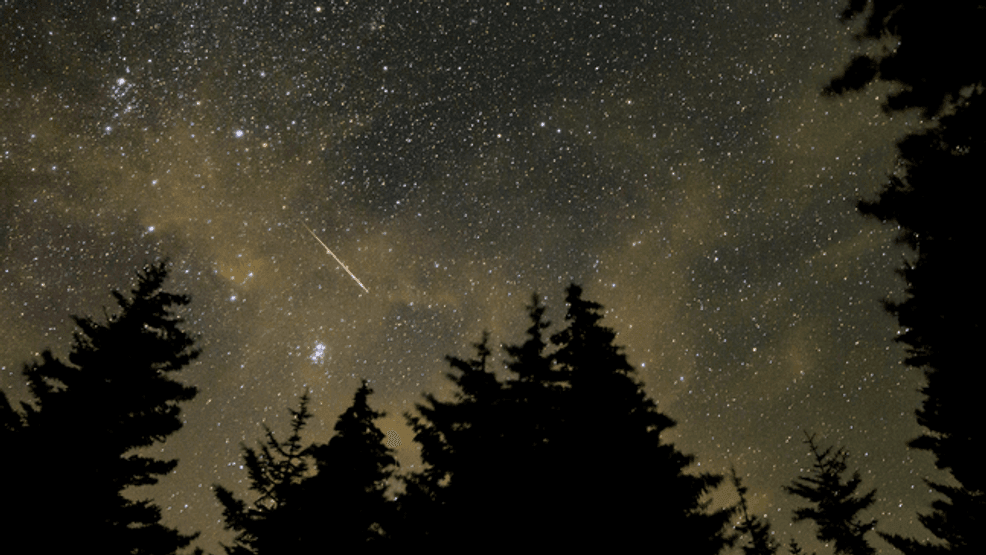Stargazers advised to seek dark skies for optimal meteor shower viewing

SEATTLE — This weekend, NASA said to keep your eyes peeled for the peak of the Perseid meteor shower.
According to NASA, the Perseid meteor shower runs from July 14 through Sept. 1 but will peak on the night of Sunday, Aug. 11, through Monday, Aug. 12.
KOMO News spoke withDr. James Davenport, a Professor and Astronomer at the University of Washington, about this weekend's peak meteor shower.
"Anytime after midnight is good, especially this weekend, the moon will be setting and so the sky will be extra dark. If you can get to a dark place where the cloud cover is clear, and there's not too much smoke with the wildfires there is a better chance to see," said Dr. Davenport.
Dr. Davenport explained that a meteor shower is when the earth passes through the tail of debris left behind by a comet.
"And so this weekend, we're going to see the Perseid meteor shower, which is the famous tail that we see in the summer.That comes from the Swift Tuttle Comet, which goes around the sun once every 130 years," said Dr. Davenport.
The best advice for those wanting to see the meteor shower is to just be patient, give your eyes time to adjust, and give it about an hour to start seeing the shower.
KOMO News asked how viewers can see the meteor shower if they live in the city, and Dr. Davenport said it's simple.
"The city can be very bright, but even if you're downtown, if you give your eyes time to adjust, you'll see a few of the meteors.It won't be the 100 per hour because most of those are little dust grains and they are not super bright," said Dr. Davenport.
According to Dr. Davenport, Shoreline or down towards SeaTac, the meteors will be more visible with at least one meteor a minute.
"Anytime that we can go outside and get people to enjoy outer space, it's such a romantic thing to be able to just watch the sky and just sort of realize that we live in this environment. I just think it's really neat and dynamic and it doesn't cost anything to go out and just really be wowed by it," said Dr. Davenport.
